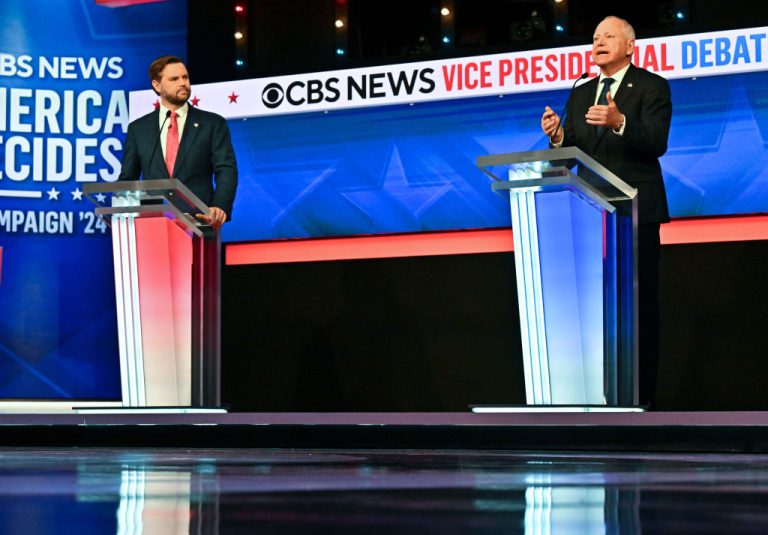Pennsylvania Republican Senator Dough Mastriano has sent letters to multiple counties seeking “information and materials” about the 2020 general election and 2021 primary for the purposes of conducting a forensic investigation. Joe Biden won the 2020 presidential race in Pennsylvania by more than 80,000 votes.
In an op-ed, Mastriano clarified that the investigation is “not about overturning the results” of the elections but to “restore faith in the integrity of our system.” In addition, the audit will seek to confirm that existing legislation on the governance of elections is effective. It also seeks to identify areas where legislative reforms are required.
“This is necessary as millions of Pennsylvanians have serious doubts about the accuracy of the 2020 General Election. A January poll from Muhlenberg University showed that 40% of Pennsylvania voters are not confident that the results of the 2020 Election accurately reflected how Pennsylvanians voted. Discounting or mocking their concerns is neither an answer nor proper in this constitutional republic,” he wrote in the op-ed.
Mastriano sent the letters as Chair of the Intergovernmental Operations Committee. It’s a standing committee of the Pennsylvania Senate that has oversight and investigatory responsibilities for activities conducted between two or more governments or levels of government. This includes the administration of elections “across the Commonwealth.”
Pennsylvania Senate Rule 14 (d) empowers the standing committee to check records of any public agency in the Commonwealth, including the county board of election. The letters requested the counties to respond by July 31.
Success
You are now signed up for our newsletter
Success
Check your email to complete sign up
The senator gave the following reasons for conducting a forensic investigation of the 2020 election:
- 2.7 million mail-in and absentee ballots were cast in the 2020 election, which is more than ten times the 263,000 mail-in ballots cast in 2016.
- Many mail-in ballots were counted with little oversight and sometimes at offsite locations without proper observation. Some mail-in ballots were counted even though no signature verification was conducted. The Pennsylvania Supreme Court made signatures on mail-in ballots meaningless by ruling that ballots could not be rejected based on a voter’s signature analysis.
- The state Supreme Court also allowed counties to count ballots that were received three days after Election Day.
- Two days before the election, the U.S. Department of State changed an election rule which had mandated that ballots received after 8 p.m. on Election Day be segregated. The U.S. Supreme Court intervened and ordered counties to segregate the ballots.
- Before polls opened on November 3, the State Department provided late guidance on how to treat mail-in or absentee ballots that were incorrectly completed. Some counties followed the rules and contacted voters with unclear information as directed by the department; other counties failed to follow these requirements.
“It would defy logic to assume that an election with the kinds of drastic changes we saw in 2020 was run perfectly with zero errors or fraud,” Mastriano wrote.
Last week, Mastriano held a private briefing with other Republican senators regarding an action plan for an audit of the 2020 election. The senator also obtained legal advice from a law firm from Philadelphia about the Senate Republican caucus using private money to pay for the audit. In a letter obtained by The Associated Press, a lawyer from the law firm said that they were uncertain as to how the Pennsylvania Supreme Court would treat the issue. However, “Pennsylvania law does not prohibit the Caucus or Committee from accepting or benefiting from such financial support.”
In early June, Mastriano was among the three Republican legislators from Pennsylvania that visited the Arizona audit site. He was also one of the Republican members who had opposed Pennsylvania casting electoral votes for Joe Biden in the 2020 presidential race.
In an interview with a radio network in May, Mastriano had stated that former President Donald Trump encouraged him to run for the post of the Governor of Pennsylvania in 2022.
“He had asked me to run some months ago… He said, ‘Doug, run, and I’ll campaign for you,’” Mastriano said in the interview.
Democrats have already voiced opposition to Matriano’s audit plan. Pennsylvania Attorney General John Shapiro, a Democrat, called Mastiano’s effort as intended to “pay homage to former President Trump” and spread “misinformation about our elections.”
“I can tell you where this specific effort will go, and that is absolutely nowhere. We will fight this tooth and nail in court,” Shapiro told CNN.
In a series of tweets, Pennsylvania Senate Minority Leader Democrat Jay Costa opposes Mastriano’s forensic investigation. Costa said that Mastriano’s committee “does not have the authority over election activity,” something which he believes falls under the purview of the state government.
Costa also raised concerns about the “authority and legality” of the audit as well as Mastriano’s “ability to lead it.” The Democrat called the audit Mastriano’s attempt to “appease the disgruntled supporters” of Trump that will serve as his “campaign vehicle” while running for the post of Governor.
In an appearance on Steve Bannon’s online show, Mastriano confirmed that he has sent letters to three counties – York, Philadelphia, and Tioga. The senator said that he will “probably” send more letters. If the counties do not reply by the July 31 deadline, Mastriano plans on bringing his committee together to discuss using subpoenas.







